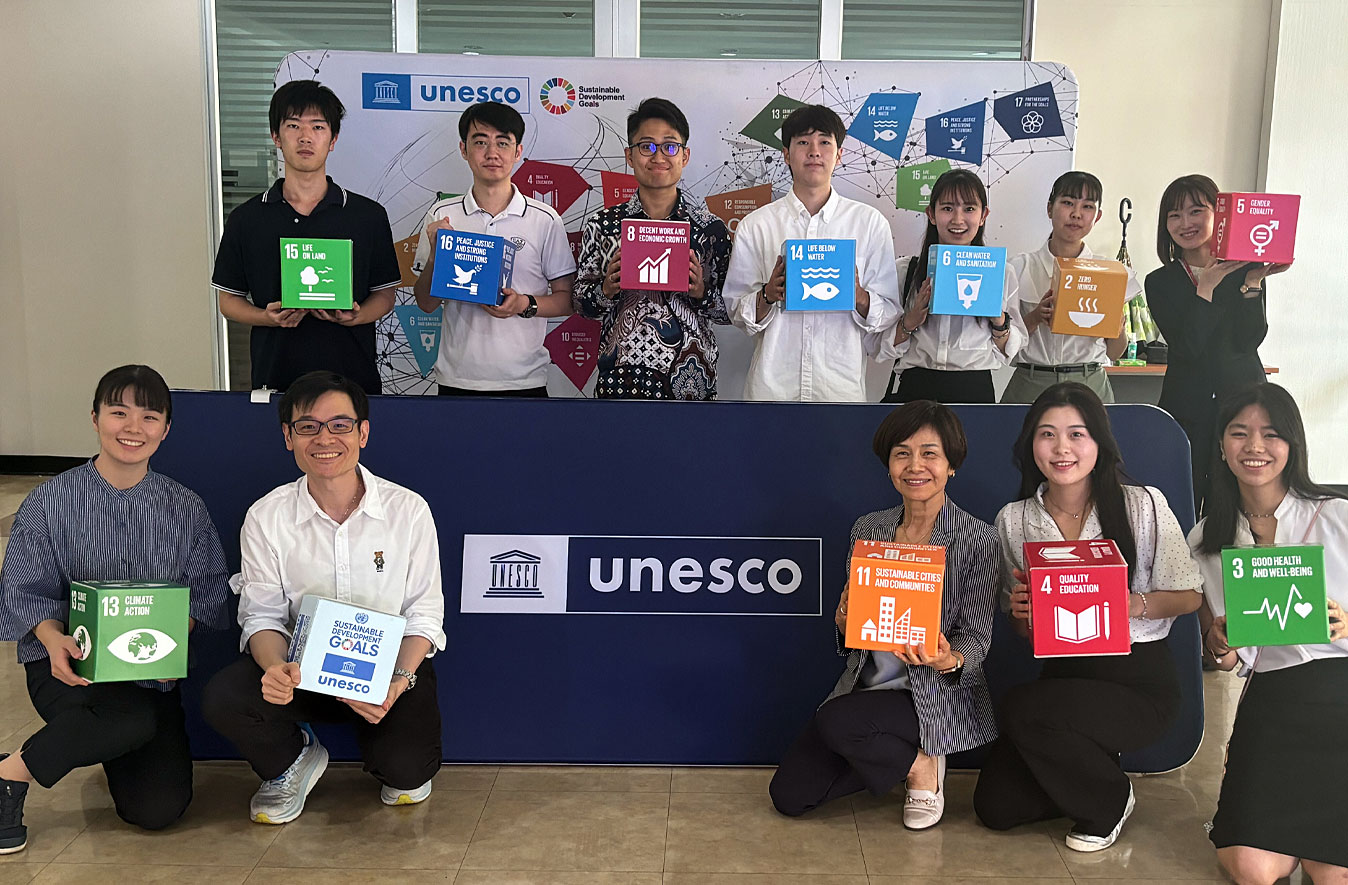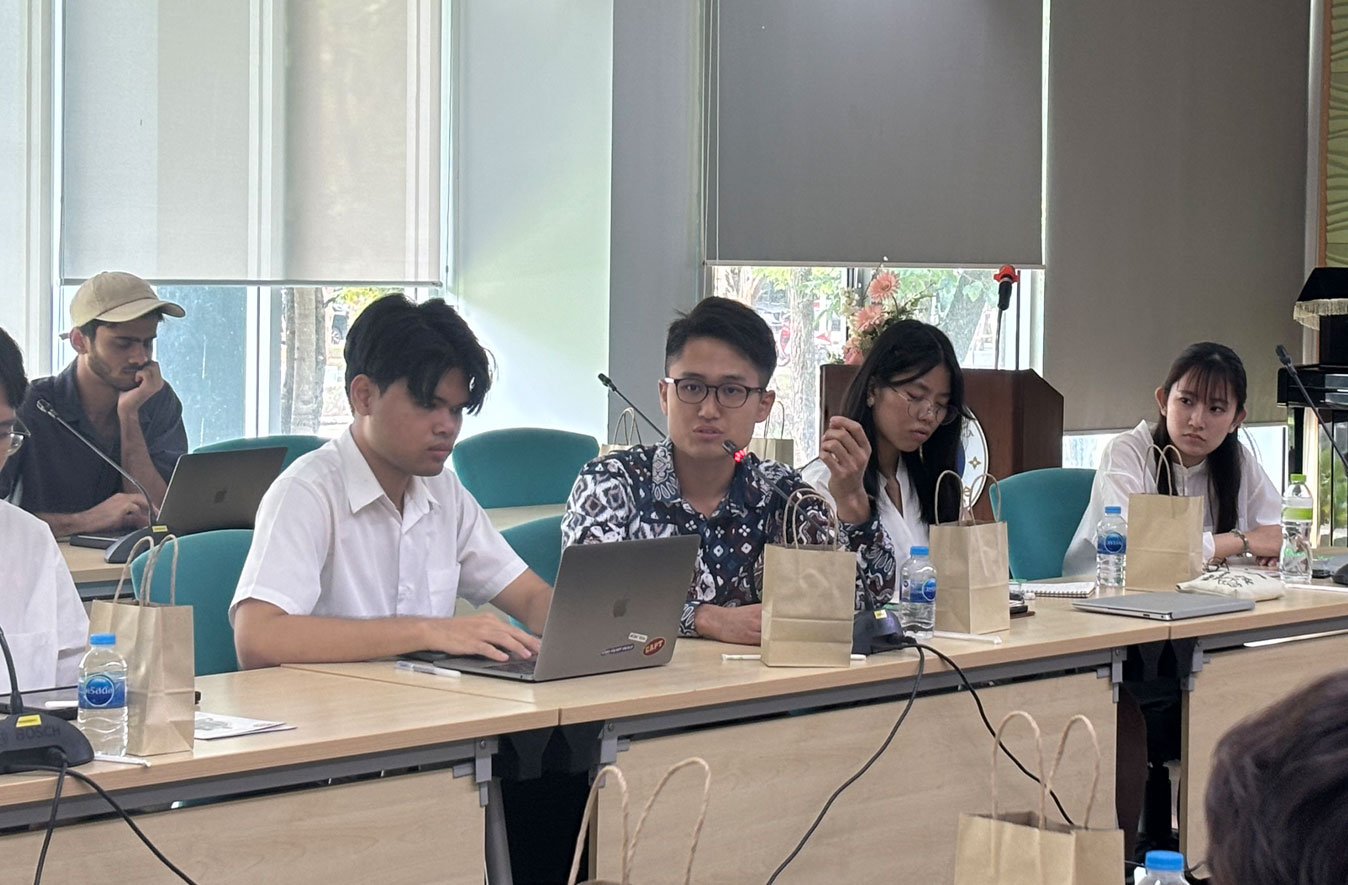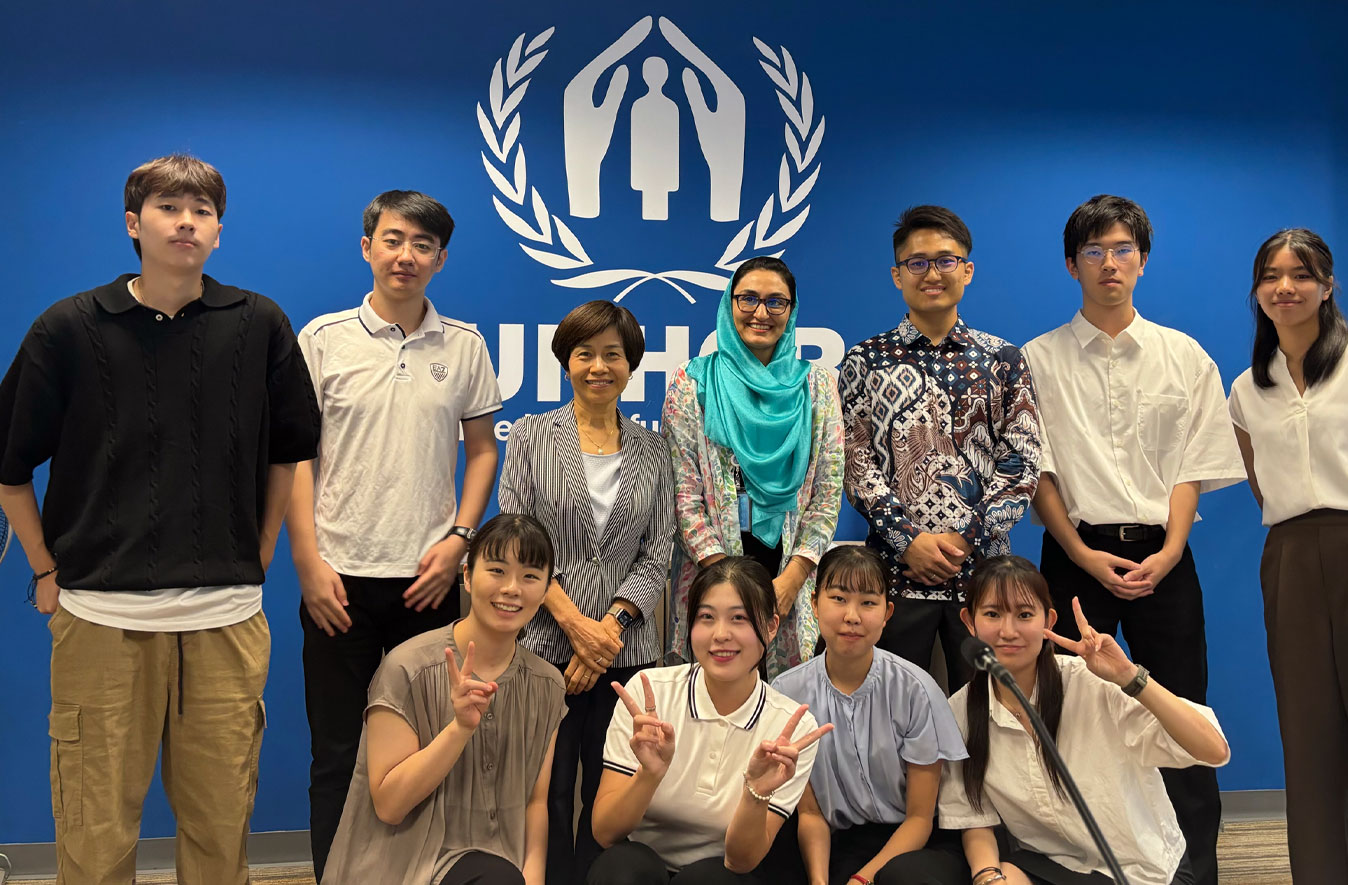
Our experience at the Thailand Bangkok Training Program strengthened my resolve to work for an international organization.
IWAMURA Atsushi
Fifth-year International Relations Major
We interviewed IWAMURA Atsushi about his participation in the 'Thailand Bangkok Training Program'. We asked him about what he learned, what he found memorable, and what he thinks about his future after having this experience.
Please tell us why you applied to the College of International Relations.
IWAMURAI majored in the College of International Relations because I was motivated by my desire to contribute to global peace and eventually work for the United Nations. My interest in world affairs originates from the realization that underlying any global movements or conflicts are complicated and many elements are interconnected. So, I aspired to learn about global politics, economics, international law, and peacebuilding at Ritsumeikan University since the College of Internaional relations at Ritsumeikan allows us to take a wide range of classes. International relations allow us to investigate the world’s complexities and gain a better understanding of how the world actually works.
What kind of activities did you get involved in at university?
IWAMURABefore enrolling in Ritsumeikan university, I wanted to broaden my horizons by studying overseas. Because I was born and raised in Japan, it was inevitable for me to see the world from Japan’s perspective. So, I determined to study at SOAS University of London not just to brush up my English skills but also to immerse myself in a culture different from my home country, Japan.
My interest in the Sustainable Development Goals (SDGs) began during high school, where I realized the importance of global cooperation to address pressing challenges like poverty, inequality, and climate change. I had been thinking that I wanted to do something about SDGs in a university. This passion continued in university, where I became a member of a foodbank contributing to the SDGs by addressing food insecurity. Additionally, I took advantage of myself being a Japanese national, I established an online community where more than 10,000 people study Japanese for free. This project aligns with SDG Goal 4: Quality Education, as it creates opportunities for language learning without financial barriers.

Please tell us what motivated you to participate in the 'Thailand Bangkok Training Program'.
IWAMURAThere are mainly three reasons why I participated in the Thailand Bangkok Training Program.
Firstly, I wanted to get a sense of what it’s like to work in international organisations such as UNHCR, ESCAP or ASEAN by interacting directly with international servants. Hearing their real experiences firsthand gave me valuable insights into the day-to-day responsibilities, challenges, and struggles. That is because when I study international affairs like conflicts or wars, normally, individuals can’t be focused compared with organisations or specific groups. So, I wanted to know how people who work for international organizations actually feel about working there.
Second, this program allows me to speak with these professionals face-to-face, enabling me to ask questions directly such as concerns about work-life balance or career path. I was pretty sure that this interaction helped me clarify what steps I need to take to pursue a similar career path and understand the skills and mindset required for this line of work.
Last but not least, I was curious to see how various international organisations address the Sustainable Development Goals (SDGs). I wanted to learn about the strategies and approaches these organisations use to tackle global issues like poverty, education, and climate change. Seeing their efforts in action further inspired me to contribute to these goals in my future career.
Please tell us about some of the key things or highlights that you took away from the program.
IWAMURAOne of the most impressive aspects of the training program was witnessing the passion that international civil servants have for their work. In every session, professionals spoke about their initiatives and how their efforts contribute to achieving the Sustainable Development Goals (SDGs). It wasn’t just the content of their presentations that struck me, but the energy and commitment they brought to every discussion. As I listened to them talk about their work, I could genuinely feel their passion and dedication. They weren't just doing a job; they truly believed that what they were doing was making a huge difference in the world. I felt like I glimpsed their IKIGAI (Life Purpose in Japanese) in their eyes. This sense of purpose was evident in every story they shared and in their approach to tackling global challenges. I have felt inspired and reassured that with the right passion and determination, it’s possible to create meaningful change through international work.
Please tell us what you would recommend to other students about this program.
IWAMURAThere are so many points that I can share about why people should join this program. However, one of the crucial benefits that you can gain is getting a sense of what it’s like to work as an international servant. By paying a visit to international organisations, you can see real international servants working directly right in front of you. You will see how they work with passion and enthusiasm. At the same time, you can even ask some questions that you can’t ask daily, such as how to deal with work-life balance, what kind of path they took before becoming an international servant or what kind of struggles they have been through. This allows you to mull over your future careers or even ignite your passion for working in international organisations.

Could you explain how the experience you gained from this program would connect your future?
IWAMURAPersonally, this program has cemented my desire to work for international organisations. This was the first time for me to go to international organisations and see people working there as international servants. At the same time, not only could we listen to their initiatives for SDGs or their roles in international organisations, but we were also allowed to talk with them face-to-face. Through the conversations that I had with them, I obtained their pieces of advice for my future career and even ignited my enthusiasm to work for international organisations in the future. I am pretty sure that this program has already had and also will have a huge significance in designing my future career decisions.

October 2024
MORE INTERVIEWS
-
Bridging Japan and the US through International Relations and Language – My Four Years in the JDP and My Global Future
INADA Mimi
Fourth-year Joint Degree Program (RU-home)2025.2.25
studentlife|academics|studyabroad|jdp|
-
While technical knowledge and job-required skills can be learnt after being on the job, some skills, such as communication, presentation, data analysis, and visualization, are the skills I was able to learn from my time at Ritsumeikan.
Pranjal Modi
RIMOWA (Global Studies Major Alumnus 2022)2025.2.4
alumni|
-
Zemi Research Convention 2024“The Integration of Human Rights into International Environmental Law and its Implications”
Ochi Seminar
(team name: Environmental Justice Analysts)2025.1.6
academics|openseminar|
-
Zemi Research Convention 2024“Are Israel's actions in Palestine considered self-defence”
Ochi Seminar
(team name: The Prosecutors)2024.12.25
academics|openseminar|
-
This supportive community empowers you to step out of your comfort zone and take on numerous challenges throughout your university life.
SUZUKI Tomoya
SAP (International Relations Major Alumnus 2018)2024.12.11
alumni|
-
Surrounded by diversified nationalities of colleagues and external business relationships, this was essentially similar to what I experienced while studying in the College of International Relations.
Joyce Lo
Mindshare (Global Studies Major Alumnus 2017)2024.12.10
alumni|